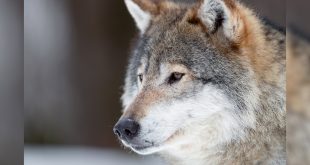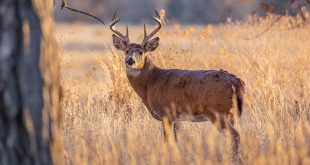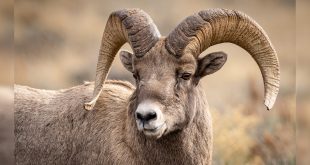
Recently we covered Part 1 Digital Scouting, in part 2 we are taking it from screen-to-field for validation and pursuit! Hopefully you have several areas lined out on your mapping program and maybe you have tested your skills on some deer or elk in your local areas (if possible) or on a scouting trip in your unit. And now it’s go time!
Day 1, be sure you are positioned to glass at first light! Cover as much ground as possible with your glass, using the master vantage points you highlighted during your digital scouting sessions. Think of this day as an expanded search and your primary goal is to look for animals from a distance and make note of your findings so you can have a solid hunt for that evening or the next day. Finding critters isn’t a given at this point, but you should find zones with good habitat or sign that need a closer look. Take your knowledge back to the maps and narrow down by applying your first hand/boots on the ground information so you can create a plan for that evening or the next day. Day 2 is almost always deep in the mountains on vantage points near the prime areas or animals you found earlier. Plan on going 3-5 miles or more and possibly an overnighter on the mountain if you are up for it. If you don’t turn up animals within the first hour of light move to another basin and repeat this until you find animals. Many times, especially for deer, they will be bedded within a short window of the sunlight hitting their backs. Therefore, glassing the shadows and west facing pockets until late morning can be very helpful. If you only find does or small bucks, hunker down and watch for the next couple hours and pick the hillsides apart. I can’t tell you how many times I have studied a feature for what seems like an eternity to suddenly see a buck get up, stretch his legs and lay back down or re-bed into his afternoon spot. Elk tend to stay on their feet longer and allow spotting later into the day, however, that is not always the case and long hours in the glass are the answer in the event you can’t find animals on the move. Unless you are lucky enough to find a shooter buck or bull right away you want to keep moving and find more prime features or animals during the mid-day slot. Don’t let-up until you find one or more huntable situations. Once you find animals you should be able to position yourself closer for an evening hunt near where you last saw them and wait until prime time. For deer, chances are you haven’t zeroed in on something you want to pursue at this point, so you will need to choose your most likely master vantage based on the days findings and sit there watching and waiting for movement until dark, once again-walking with your eyes is key, finding vantage points that open massive tracks of land is very helpful. Locate as many deer as possible, does, small bucks etc. and keep an eye on them. As evening approaches or morning comes, you will often start turning up the bigger bucks.
Tips:
1). Buy the best optics you can afford, this will increase your ability to find game drastically. If you are set on deer hunting make sure a decent spotting scope is in your pack as well.
2). When you scout or hunt your areas, make note of the time of year and habitats you find game in. It will help you find game in the future and identify the terrain more accurately from satellite imagery as well.
3). Deer and elk move from summer habitat to fall habitat and finally to winter habitat, with hunter pressure compounding each of these in different ways, so don’t plan too certainly from your early scouting trips. Make sure you have plan B ready! A successful hunter must become a chameleon that can adapt quickly and use change as a tool to sharpen them into something better.
4). Don’t miss out on first light or last light! Make sure you have a good headlamp and get into position at the crack of light and stay until last light.
5). If you are elk hunting listen very closely for bugles and don’t be afraid to cow call or locate bugle as you uncover new country.
6). Returning to base camp on a separate ridge or drainage system allows for optimal spotting of new country along the way.
Use these strategies this coming season and I think you’ll be surprised at how much more game you turn up and how much more effective a hunter you are because of it. Good luck out there!
 Eastmans' Official Blog | Mule Deer, Antelope, Elk Hunting and Bowhunting Magazine | Eastmans' Hunting Journals
Eastmans' Official Blog | Mule Deer, Antelope, Elk Hunting and Bowhunting Magazine | Eastmans' Hunting Journals




